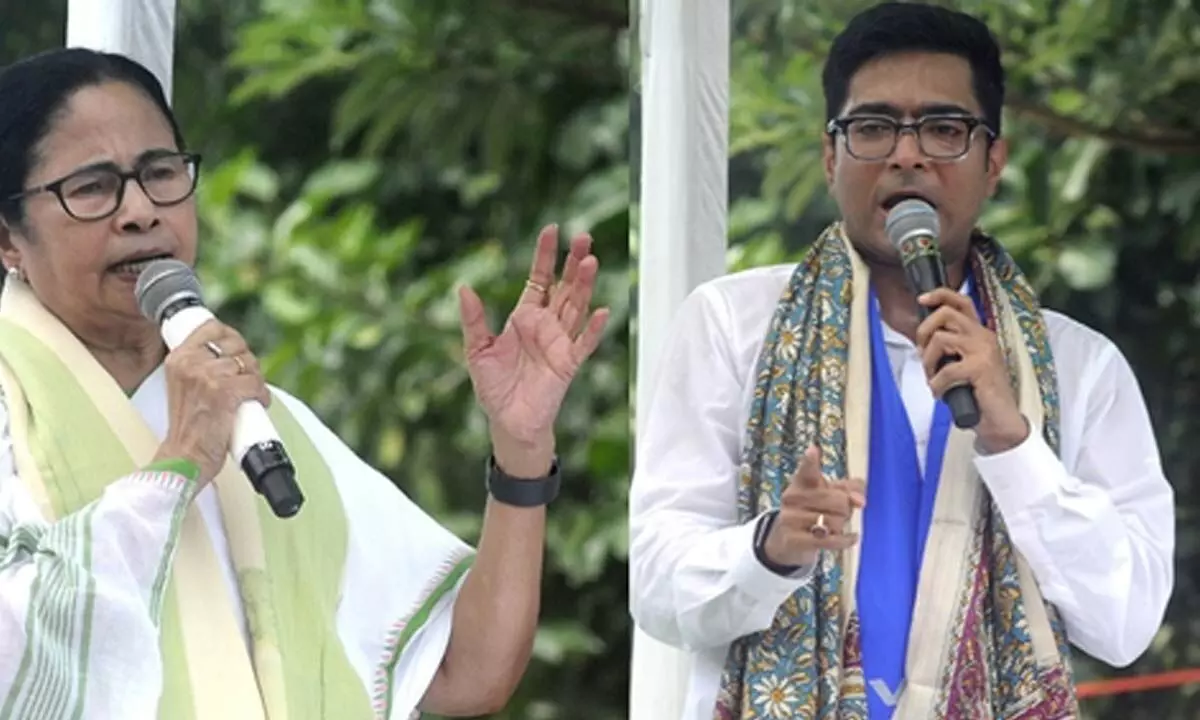TMC has a tradition of being hyper-sensitive to slightest criticism
Share :

For the last few years the state administration in West Bengal, especially the police, has been accused of intolerance towards any kind of criticism, jibes and social media memes against the state government or the ruling Trinamool Congress.
Kolkata: For the last few years the state administration in West Bengal, especially the police, has been accused of intolerance towards any kind of criticism, jibes and social media memes against the state government or the ruling Trinamool Congress.
There are two forms that this intolerance of the state administration and the ruling party is taking. The first is prompt police action including arrest of anyone making a negative public statement about any top ruling party leader or even posting or sharing a meme on social media.
The second is the immediate rejection of permission for holding an event or rally by any Opposition party or even by any non-political organisation if it is on any issue that is against the Government.
Rejection is also inevitable if the said rally or programme is anywhere close to the residence or office of a top administrative officer or ruling party leader in the state.
In such cases, the organisers have to approach the Calcutta High Court for permission and the latter invariably gives the go ahead.
The police administration has also faced the ire of the Calcutta High Court a number of times for such an intolerant and hyper approach on such issues.
Last month, a single-judge Bench of Justice Jay Sengupta of the Calcutta High Court lambasted the police for arresting a youth from Lalgola in Murshidabad district for creating a social media meme on Trinamool Congress National General Secretary and the party’s Lok Sabha member Abhishek Banerjee. The police had also seized the laptop of the arrested youth.
While questioning the police on why the youth was arrested without being served a notice, Justice Sengupta also expressed anguish over how a police team from Baranagar on the northern outskirts of Kolkata went with such alacrity to faraway Lalgola to arrest a youth. He also directed the police to return the youth’s laptop immediately.
In March this year the police force was censured by the Calcutta High Court for its overenthusiasm in arresting an Opposition leader.
State Congress leader and Calcutta High Court counsel Kaustav Bagchi, while interacting with the media had referred to a book penned by a former bureaucrat on the life of Chief Minister Mamata Banerjee.
On the same night, a police team from the Burtolla Police Station in north Kolkata reached Bagchi’s residence at Barrackpore in North 24 Parganas district and questioned him throughout the night before arresting him on charges of instigating tension.
Though booked under the non-bailable Sections of the Indian Penal Code, Bagchi was released on bail within eight hours of his arrest. Later, Bagchi filed a suit in the Calcutta High Court and accused the police of being overzealous.
The court censured the city police for arresting Bagchi without serving any notice and also observed that such police actions were against the guidelines framed by the Supreme Court on this count.
The High Court also directed the city police commissioner to scrutinise the role of the officer-in-charge of Burtolla Police Station in the matter.
In fact, the Trinamool Congress’ brazen intolerance became evident just a year after the party came to power in 2011 ending the 34-year Left Front regime. Jadavpur University Professor Ambikesh Mahapatra was arrested in 2012 for forwarding a cartoon related to Mamata Banerjee and the then Trinamool Congress National General Secretary Mukul Roy.
In April 2012, Mahapatra forwarded that cartoon via email to some members of a housing society on the southern outskirts of Kolkata. Someone in the group filed a complaint at the local police station. Soon Mahapatra and the-then secretary of the housing complex Subrata Sengupta, an engineer by profession, was arrested by police and booked under Section 66A of the Information Technology Act, 2000.
Although both Mahapatra and Sengupta were released on bail, the case continued. The police continued the case against Mahapatra even after the Supreme Court in 2016 scrapped Section 66A of the IT Act and asked all state governments to close and drop all cases under this Act.
Finally in the beginning of 2023, Mahapatra was acquitted of all charges by a lower court in Kolkata after fighting an 11-year-long battle. The other accused, Sengupta died at the age of 80 in 2019.













